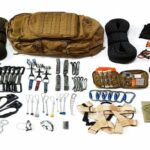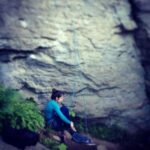Winning at your own head game: I love the physical aspects of climbing – the burn after a quick, intense gym session or feeling completely spent after a long day at the crag. But for me, it’s the mental aspect that keeps me coming back. The “head game” adds a layer of complexity that I haven’t experienced with other sports and reveals much more about you than just your performance as a climber.
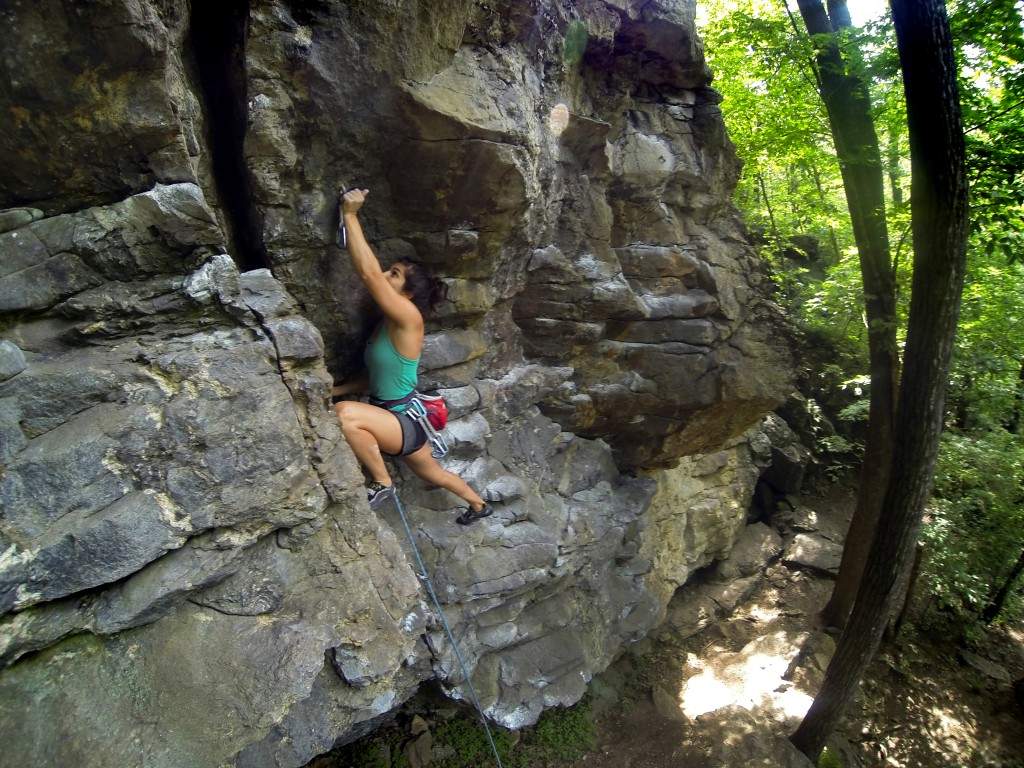
Your head game shows you where you’ve been, where you currently are with the sport, and where you’re going. It can completely make or break your climbing experience. Today I’m sharing my thoughts on making sense of your head game by teasing it apart with some seemingly easy questions. I’ll share my answers as an example of just how wonderfully messy and rewarding your head game can be.
Must-read useful Ice climbing tips, here!
Ask Yourself: What’s My Backstory And How Has It Prepared Me For Climbing?
Everyone’s head game is most likely affected by his/her prior experiences. Here’s the gist of where I’m coming from: I’m the only girl in a family of 9 (yes, I have 8 brothers) and grew up with an “anything you can do I can do better” – Annie Oakley – kind of attitude. I wanted to be a part of the gang and my gang happened to be made up of 8 burly guys. At the age of 9, my parents enrolled me in gymnastics so that I’d spend more time with girls, and I took to it immediately.
I started competing right away and didn’t stop until the end of college. I loved the measurable progression of gymnastics, the camaraderie, and the idea that if I practiced a specific movement enough I could trust my body to perform without fail.
After college I dabbled in yoga, running, and swimming, and then almost 3 years ago, at the age of 27, I found climbing. In terms of preparing me for climbing, I think I’m incredibly lucky to have my background. I came into the sport with broad shoulders (a source of childhood insecurity that I have come to love), an awareness of body position, and a strong sense of competition.
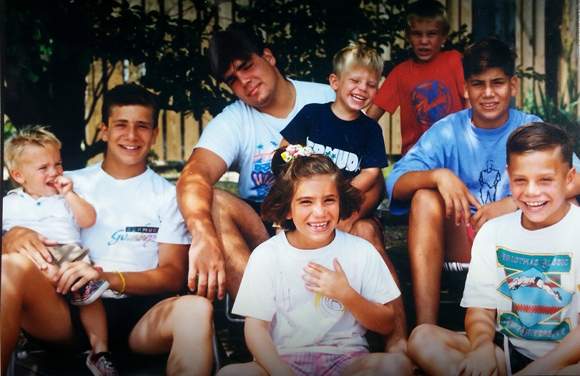
The bros and I at age 8. If you’re counting, my youngest brother wasn’t born yet.
Ask Yourself: How Do I Prepare Myself Right Before Climbing? What Is Working For Me? What Is Working Against Me?
Thanks to my background, I don’t have much fear around climbing, heights, or trusting the system. I don’t have to psych myself up to try hard or convince myself that I can physically pull moves that are within my current limit. This sense of confidence (even if proven false at times) is something that I had ingrained in me at an early age. Instead, I struggle with over-thinking a climb and putting too much pressure on myself to perform. If I’m confident and strong, I should be able to do it, right? But where that thought ends a string of doubt comes flooding in…
What if I botch the sequence? What if I don’t read the rock right? For now, I deal with this by starting a climb with some variation of the mantra, “Relax and trust your body. It knows what to do.” Most of the time this helps to calm my nerves, but of course, there are times when it just doesn’t work. And as I write this, it becomes clear to me that after less than 3 years of climbing, it shouldn’t always work.
Of course, I’m going to read rock incorrectly, get flustered, and mess up sequences, so I should cut myself some slack and really believe it when I say, “Trust your body. It knows what to do.” If I can put my trust in that I can use my energy to enjoy the climb and work on my weaknesses.
Ask Yourself: What Runs Through My Head While I’m Climbing? How Do I Respond In Specific Situations?
When a route is well within my limit, I try to stay fluid and not think too much. However, by not thinking I often don’t remember sequences, so what I gain fluidity I lose in forgetting the movement. I’m actively working on being present and aware of my sequences without over-thinking my movement. If I hit a tricky sequence or find myself too much in my own head, I remind myself of simple techniques, like getting my feet up or turning my hips. This serves as a reminder to relax and to just climb like my body knows how to.
When I find a good rest, I take it! I’m usually raring to go, so just when I think I’ve rested long enough, I tell myself to rest for another minute or so. Then there’s the dreaded pump. My head game when I’m pumped is hit or miss at the moment. Sometimes I panic, climb sloppily, and end up taking a fall. But every once in a while I can get it together, remind myself of good technique, and try to focus only on the moves directly in front of me, hoping that I’ll find a jug or good rest ahead.
When I’m well above my bolt and the fear of the fall starts setting in I also try to focus only on what’s in front of me and tell myself, “I’ve got these couple of moves. My next bolt is right there.”
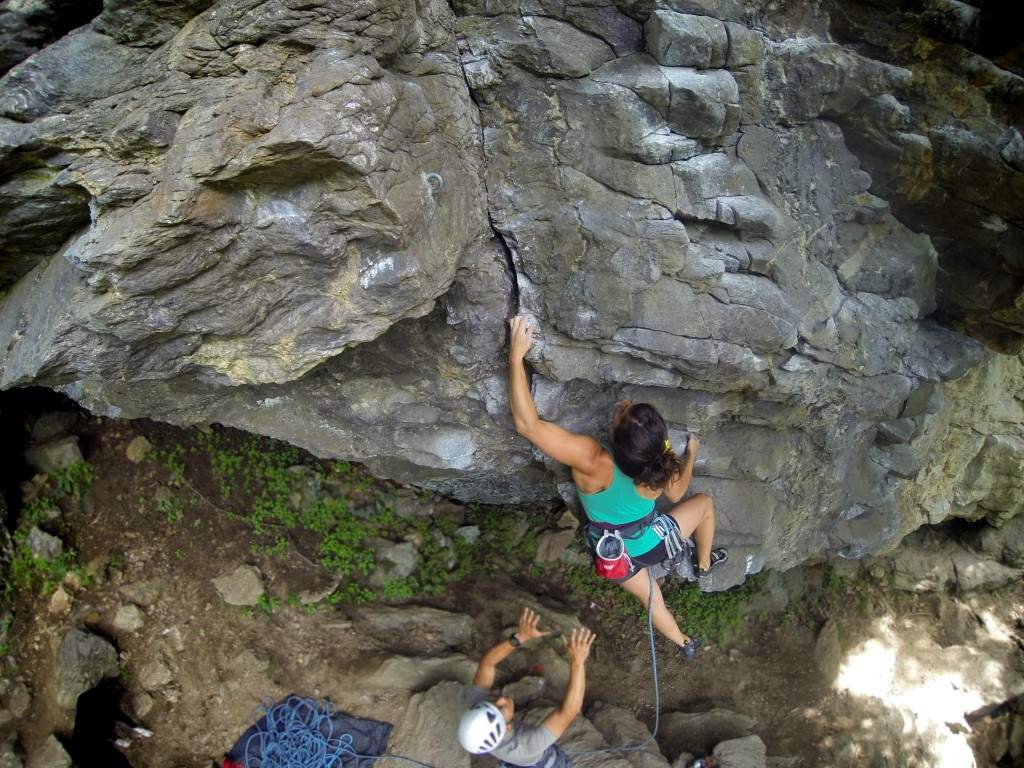
Ask Yourself: How Do I React When I Finish A Climb? Both When I Succeed And When I Fail?
Welcome to the most unruly part of my head game. Yes, it’s true (and embarrassing) that climbing has made me cry, yell, pout, give my climbing friends the grumpy, “I’m fine!” and then keep to myself for the next 30 minutes. I think this stems from putting too much pressure on myself to perform while at the same time always being confident that I can pull moves within my limit.
This confidence is key to a lot of the success I’ve had with climbing, but it seems to make failing feel so much worse. I’m currently working on maintaining my confidence AND accepting that I can’t succeed every time. Failing is inherent in climbing, without it we don’t progress or learn anything new, so I’m trying to appreciate this phase of the process. When I’m successful on a climb, I enjoy it briefly but tend to start thinking about my next project too quickly and forget to relish what I had just accomplished. So, in addition to accepting and appreciating my failures, I’m also working on enjoying my successes.
Ask Yourself: What Themes Run Through My Answers? How Can I Improve My Head Game From Here?
Working through these questions has given me a clearer sense of my current head game and highlighted my strengths and weaknesses. From here I hope to be more aware of my head game, to use it to my advantage, and to recognize when it’s sabotaging my experience. For me, the overarching conclusion from answering these questions is that I need to relax, enjoy the process, and continue to try hard. In answering these questions for yourself, you’ll probably come to different conclusions, ones that are unique to you. And that’s what I love so much about this sport – that we all experience it differently and through it, learn more about ourselves.
Climb on!
-Mary




